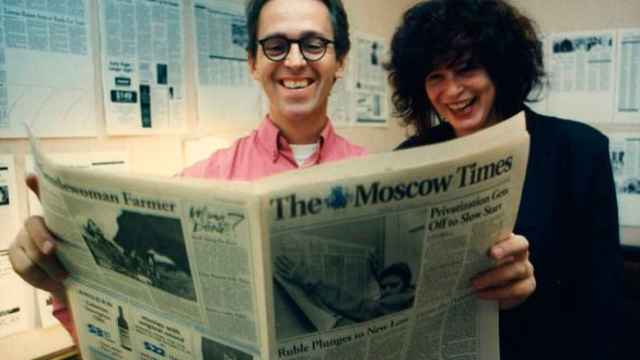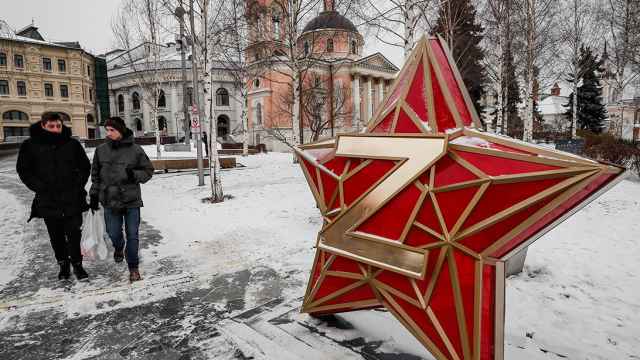Ksenia* is a dear friend and an admirable person. She is a single mother to a teenage daughter, a prison guard turned university lecturer and a religious resident of a small provincial city. She has no desire to ever see that change — and nor should she.
As you might imagine, Ksenia has experienced all the benefits and drawbacks of contemporary Russian life. Government jobs and inherited family holdings and living with an elderly relative after a messy divorce can make for a typical life lived beyond the Moscow Ring Road.
We recently caught up and I asked what her plans and hopes for 2026 were. “No plans. Only December.” Unusually candid for Ksenia, few others have said much differently.
A young mother and her son, whom we met on holiday this year in the Urals, paid a third more for the exact same trip this year. She’s a school cook and it’s unclear whether they will be able to afford it next year. My father-in-law’s car needs a repair, but it’s unclear whether that’s possible. The thought of a Chinese-made car is shudder-worthy.
Before 2022, people in Russia made New Year's bucket lists. Hedging was not really needed because concrete plans could be made. Since then, we have all hoped for the best and a quick return to normal in our toasts ahead of midnight. Hedging is in vogue.
Ahead of 2026, a big question mark hangs over ordinary Russians' heads. What is there to look forward to?
Russia’s New Year dinner tables on Dec. 31, 2022, were jaded places. There felt like nothing to celebrate so we just went through the motions of making dinner, watching the fireworks and indulging in other forms of entertainment, though the usual faces had disappeared from TV.
On the face of it, life appeared to be carrying on largely as normal despite the war in Ukraine. The appearance of pro-war propaganda was the only visible difference. But the future was uncertain: business deals, projects, trips and events were canceled. Shopping malls stood empty and the shelves were restocked with domestic copycats or replacements sourced from Asia. Prices went up, but even a return to those levels would be much appreciated today.
A lot has changed since then. Normality returned in 2025 and Russia is far from the fascist basket case some foreign experts paint it as.
But normality got a facelift.
The war has completely faded into the background of most people's lives. Most have successfully blocked it out and adapted to focus on normal everyday life: family, flats, feasts and festivities.
The sense of detachment most felt was in part due to the fact that they and their relatives have no direct connection to the fighting. Where most of those around me really stand on the war is genuinely hard to gauge. It isn’t a popular topic of discussion.
Nevertheless, most had created a relatively safe and comfortable existence with glimmers of bygone years emerging through the cracks. People in 2025 are making the best of what they have, which brings a sense of melancholy. Hope also returned as most were quietly optimistic for a ceasefire and negotiations to begin. The end felt in sight for the first time in a long time.
However, as 2025 dragged on, that hope dissipated. The peace talks fell through and ordinary life came increasingly under attack. New problems and challenges emerged. Calling parents on WhatsApp became a chore some days. The rules at work were regularly updated. If few paid attention to these minor inconveniences before, ignoring them gets harder each day.
Ahead of 2026, many ordinary people are starting to ponder: What else could make life harder next year? Is hoping for the war's end next year even worth the energy? We have been disappointed before, after all. Is hoping to ride out 2026 the only true way to get on in contemporary Russia?
My family and I recently watched Turetskaya Teatrad’ (Turkish Notebook) together, on Channel One. Its host, Vladimir Pozner, is back on TV after his show was canned to make room for coverage of the war. The documentary series was like most of his others (minus his usual co-presenter, Ivan Urgant). Yet, it was the end commentary, I think, which really got the essence of modern Russia.
Pozner said that Turkey is a country where the old triumphs over the new. He might just as well have been talking about Russia. In the heart of Moscow, the Kremlin is utterly obsessed with Russian history. Outside of Moscow, the historical myths it champions do have more resonance. Why? Because the old buildings, transport and ways persist.
Schools look the same, as do the famous lunchtime pizzas, teachers' outfits, textbooks and teaching methods (unless, perhaps, you live in a more affluent area). Kiosks sell the same tat they always have. Official buildings still have the old aura they once did, as do the poliklinika medical centers and train stations. As so little has changed, the past feels much closer.
Of course, materially, many things are different outside the capital. There are trendy restaurants and cafes that rival the big cities. People are renovating their homes more often and doing more with their land plots. The quality of certain facilities and services has also improved in the provinces. People notice better functioning banks and post offices more than petrol shortages. Moreover, the pace of change is slower and life outside of your neighborhood is seldom important or worth considering.
Yet, to look forward, one also must also move forward — otherwise you are stationary. Russia at the end of 2025 has become stationary as the old continues to linger. It feels completely stuck in the present, surrounded by the past, unable to contemplate its future.
The end of the war is only one way to look forward and hope for the best. But thinking of that reminds us how we got here. For most Russians you interact with, it’s just not worth it. They have been disappointed more than once.
As Ksenia said, December comes first. Next year can wait.
*Names and locations have been changed.
A Message from The Moscow Times:
Dear readers,
We are facing unprecedented challenges. Russia's Prosecutor General's Office has designated The Moscow Times as an "undesirable" organization, criminalizing our work and putting our staff at risk of prosecution. This follows our earlier unjust labeling as a "foreign agent."
These actions are direct attempts to silence independent journalism in Russia. The authorities claim our work "discredits the decisions of the Russian leadership." We see things differently: we strive to provide accurate, unbiased reporting on Russia.
We, the journalists of The Moscow Times, refuse to be silenced. But to continue our work, we need your help.
Your support, no matter how small, makes a world of difference. If you can, please support us monthly starting from just $2. It's quick to set up, and every contribution makes a significant impact.
By supporting The Moscow Times, you're defending open, independent journalism in the face of repression. Thank you for standing with us.
Remind me later.






